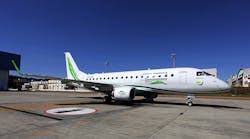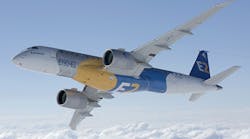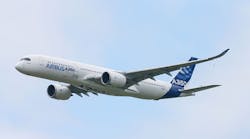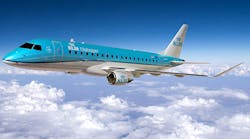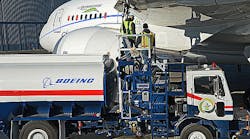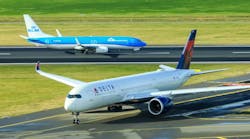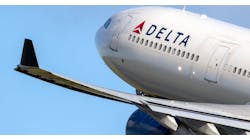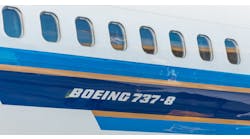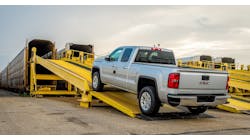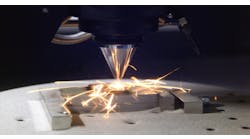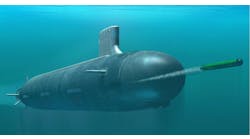Jet-builders Boeing Commercial Airplanes and Embraer S.A. have introduced a new testing phase for the their collaborative ecoDemonstrator program, which was launched last year to test “performance-focused environmental concepts, including reducing fuel consumption, carbon emissions, and noise, and expanding their ongoing cooperation aviation biofuel research.” Now, an Embraer E170 narrow-body jet will serve as a flying tested to evaluate a series of advanced environmentally focused technologies, in operational tests during August and September in Brazil.
Boeing initiated its own ecoDemonstrator Program in 2011 to fast-track testing and application of new technologies to reduce fuel consumption, carbon emissions, and noise. "As industry leaders, we have a unique opportunity to invest in technologies that encourage our industry's long-term, sustainable development, while supporting our customers' environmental goals," stated Boeing CTO John Tracy.
So far, the Boeing has tested over 50 new technologies on various commercial aircraft series, including the Next-Generation 737-800, 787 Dreamliner, and the 757. The OEM has worked with suppliers, airlines, and government agencies on individual ecoDemonstrator flight tests. Among those technologies were a new winglet and "bug-phobic" wing coatings that can improve aerodynamic efficiency, software applications that can improve in-flight efficiency, and new types of sustainable aviation biofuel.
To date, Boeing’s ecoDemonstrator program has tested more than 50 aircraft technologies, using 737 (2012), 787 (2014), and 757 (2015) as flying test-beds.
Boeing and Embraer initiated their collaborative research 2012, with efforts to improve runway safety and support Embraer's KC-390 defense-aircraft program.
Early last year, Boeing and Embraer established a research center in Brazil to coordinate and co-fund aviation biofuel research, focusing on feedstock production, techno-economic analysis, economic viability studies, and processing technologies.
In the next phase of research, an Embraer E170 narrow-body jet will serve as a flying tested to evaluate a series of advanced environmentally focuses technologies, in operational tests during August and September in Brazil.
One of those technologies being tested is LIDAR (Light Detection and Ranging) technology, using lasers to measure true airspeed, angle of attack, and outside air temperature. Boeing explained that LIDAR shows potential to increase air data reliability, as a complement to current sensor technologies, which could promote other developments that improve fuel efficiency and cut carbon emissions.
Another test will focus on sensors and air visualization techniques near the wing surface, to gain a better understanding of in-flight aerodynamics. This analysis could lead to more innovations that improve fuel efficiency and reduce carbon emissions, such as new wing designs.
Still another technology being tested is an "ice phobic" paint designed to reduce icing due to its low adhesive property; it may also help prevent accumulation of dirt and bugs. The benefit would be to help operators to cut back frequent aircraft washing, saving water.
The flying tested also will evaluate a new wing design, with improved slats to reduce noise on takeoff and approach.
Boeing and Embraer also plant to test a new, Brazilian-produced biofuel blend with 10% bio-kerosene and 90% fossil kerosene, the maximum mixture according to international standards. Aviation biofuel reportedly emits 50-80% lower carbon emissions through its life cycle than fossil jet fuel.
"Collaborating with Boeing on the ecoDemonstrator program in the structuring and implementation of new technologies tests reinforces, once again, Embraer's commitment towards a sustainable future," stated Mauro Kern, Embraer’s executive vice president.
